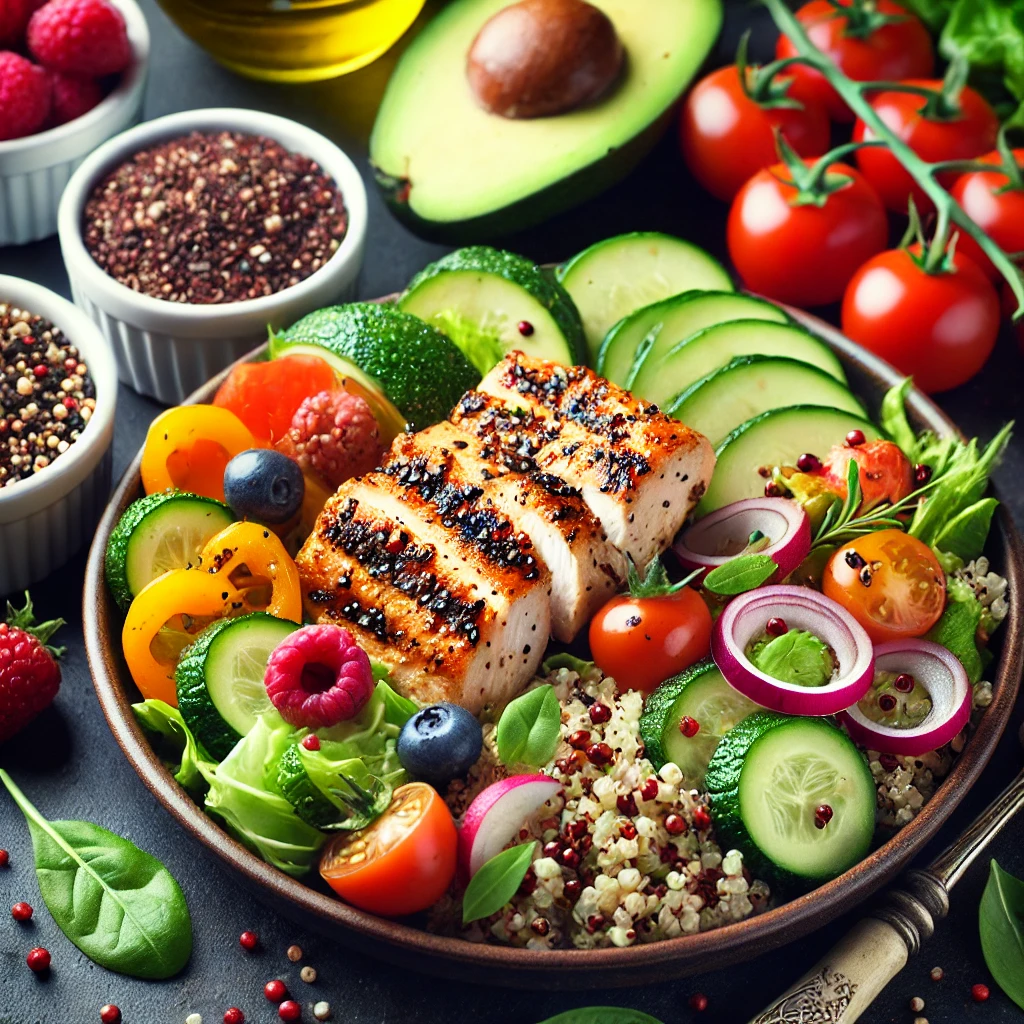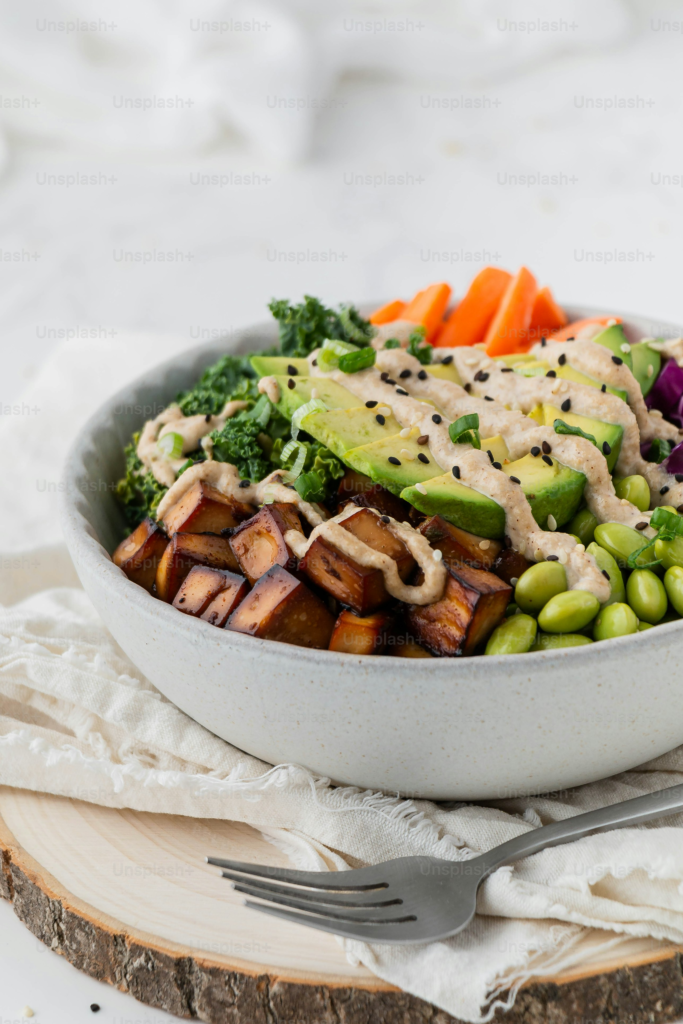Table of Contents
Introduction to Healthy Weight Loss

Embarking on a journey towards healthy weight loss is fundamentally about creating a balanced lifestyle that aligns with one’s personal well-being. The primary objective is not just to shed pounds but to do so in a manner that promotes enduring health and vitality. A prevailing misconception is that effective dieting demands the elimination of all flavor from our meals. This view can lead many to adopt drastic, unsustainable eating habits that do more harm than good.
Healthy weight loss is all about making informed and mindful choices. It’s crucial to understand that the path to a healthier weight does not require sacrificing taste or culinary pleasure. Much to the contrary, flavor and nutrition can coexist harmoniously, making the process more enjoyable and sustainable. By emphasizing a variety of nutrient-rich foods and incorporating diverse flavors, individuals can achieve their weight loss goals without feeling deprived.
In this blog, we will explore a range of strategies designed to help you lose weight in a healthy and flavorful way. From meal planning tips to understanding the role of balanced nutrition, you’ll discover that healthy weight loss is not only possible but also deeply satisfying. Embrace the journey to better health with the assurance that delicious, nutritious meals can be a cornerstone of your success. Whether you are just beginning or looking for ways to enhance your current approach, this guide will offer insightful and practical advice, ensuring your path to a healthier you is both effective and delightful.
Understanding Nutritional Balance

A balanced diet is fundamental to achieving and maintaining a healthy weight. It involves a harmonious mix of macronutrients—proteins, fats, and carbohydrates—alongside essential micronutrients such as vitamins and minerals. Each nutrient group plays a distinct role in supporting bodily functions and weight management.
Proteins are vital for muscle repair and growth. They help in preserving muscle mass during weight loss, ensuring the body primarily burns fat rather than lean tissue. Sources include lean meats, fish, dairy products, legumes, and nuts. Carbohydrates, often misunderstood, are crucial for providing energy, especially to the brain and muscles. Emphasis should be placed on consuming complex carbohydrates found in whole grains, fruits, and vegetables, which offer sustained energy and promote satiety.
Fats, despite their high calorie content, are indispensable. Healthy fats, particularly unsaturated fats found in nuts, seeds, avocados, and olive oil, support cell function and hormone production. Replacing trans fats and saturated fats with these healthier options can aid in maintaining a healthy weight.
Micronutrients, including vitamins and minerals such as vitamin D, calcium, iron, and magnesium, facilitate numerous biochemical processes and enhance overall health. They support immune function, bone health, and energy production, forming an integral aspect of a balanced diet. A diverse array of colorful fruits and vegetables, lean proteins, and whole grains can help ensure adequate micronutrient intake.
Portion control is another crucial facet of nutritional balance. Overeating, even healthy foods, can lead to weight gain. Paying attention to serving sizes and resisting the urge to eat until uncomfortably full can prevent this. Mindful eating, which involves savoring food and recognizing hunger and fullness cues, further fosters a healthier relationship with food and can curb overeating.
In essence, understanding and applying the principles of a balanced diet—combining appropriate portions of macronutrients and micronutrients while practicing mindful eating—lays the groundwork for effective weight management without sacrificing the enjoyment of food.
Incorporating Whole Foods

Whole foods play a crucial role in any effective weight loss strategy. Unlike processed foods, which often contain added sugars, unhealthy fats, and artificial ingredients, whole foods are nutrient-dense and provide the body with essential vitamins, minerals, and fiber. By choosing whole foods like fruits, vegetables, lean proteins, whole grains, and healthy fats, individuals can enhance their overall health while promoting weight loss.
Fruits and vegetables are excellent sources of essential nutrients, fiber, and antioxidants. Leafy greens, berries, and citrus fruits, for example, are rich in vitamins and minerals that support metabolism and overall well-being. Lean proteins, such as chicken, turkey, tofu, and legumes, help build and repair tissues and can aid in prolonged satiety, reducing the likelihood of overeating. Whole grains, including brown rice, quinoa, and oats, provide sustained energy and help maintain stable blood sugar levels. Healthy fats, which can be found in avocados, nuts, seeds, and olive oil, are essential for proper brain function and hormone production.
Incorporating whole foods into daily meals need not be bland or uninspiring. Using herbs and spices can significantly enhance the flavor of dishes without adding unnecessary calories or unhealthy ingredients. For instance, adding basil, rosemary, or thyme to roasted vegetables can create depth of flavor. Similarly, using cumin, paprika, and turmeric in lean protein recipes can make meals more satisfying and flavorful. For those with a sweet tooth, incorporating fruits such as berries or a sprinkle of cinnamon to oatmeal or yogurt can provide a healthy yet delicious alternative to sugary snacks.
Pioneering a diet rich in whole foods not only supports weight loss but also promotes long-term health. By thoughtfully incorporating a variety of whole foods and using herbs and spices to elevate flavor, individuals can enjoy nutritious and satisfying meals without ever feeling deprived.
Recipe Modifications for a Healthier Diet

Achieving a healthier diet does not necessarily require abandoning your favorite recipes. Simple modifications can reduce calories and enhance nutritional value without sacrificing flavor. One effective strategy is to substitute high-calorie ingredients with healthier alternatives. For instance, replacing cream with Greek yogurt in sauces and dressings maintains a rich texture while significantly lowering fat and calorie content. Greek yogurt is also high in protein, making it a nutritious addition to many dishes.
In baking, avocado can be a fantastic substitute for butter. The creamy consistency of ripe avocado can mimic the texture of butter, while also providing a dose of healthy fats. This swap can reduce saturated fat content and introduce beneficial nutrients like fiber and vitamins. Additionally, using unsweetened applesauce instead of sugar not only cuts down on calories but also adds natural sweetness and moisture to baked goods.
Another technique involves incorporating more vegetables into meals. For example, using zucchini noodles or “zoodles” in place of traditional pasta significantly reduces caloric intake while boosting the meal’s fiber and vitamin content. Similarly, cauliflower can be used as a low-carb alternative for rice or mashed potatoes, offering a lighter but equally satisfying side dish.
Whole grains are another important consideration. Swapping refined grains, such as white rice or pasta, for whole grains like quinoa, brown rice, or whole-wheat pasta can provide more fiber, vitamins, and minerals. These options tend to be more filling, helping to prevent overeating.
Finally, mindful seasoning can enhance flavor without adding extra calories. Herbs, spices, and citrus can elevate dishes without relying on calorie-dense ingredients like cheese or butter. For example, using a blend of garlic, lemon, and fresh herbs can make a simple grilled chicken dish both flavorful and healthful.
By making these thoughtful substitutions and adjustments, you can enjoy your favorite meals while supporting your health and weight loss goals. Small changes can lead to significant improvements in your diet and overall well-being.
Meal Planning for Taste and Health

Effective meal planning is a cornerstone for achieving substantial weight loss without sacrificing the joy of flavorful meals. A well-structured meal plan ensures nutritional balance and variety, helping you stay on track with your weight loss goals while enjoying diverse and delicious dishes. To create a successful meal plan, it is important to incorporate a few key strategies that make the process both efficient and enjoyable.
Begin by selecting balanced meals for the week that include a mix of lean proteins, whole grains, healthy fats, and plenty of fruits and vegetables. This diversity not only covers all essential nutrients but also keeps your palate satisfied. When preparing your meal plan, consider using a template or digital app to organize breakfasts, lunches, dinners, and snacks. This helps streamline grocery shopping and reduces the likelihood of impulsive, unhealthy food choices.
Batch cooking can be a game-changer for ensuring that you have healthy and tasty meals readily available throughout the week. Allocate some time during the weekend to prepare and cook large quantities of staple foods, such as grilled chicken, quinoa, and roasted vegetables. Store these items in individual portions, so they can easily be assembled into different meals. By doing so, you save time during busy weekdays and avoid the temptation of opting for quick but unhealthy alternatives.
Incorporating a variety of flavors and cuisines into your meal plan can keep your diet exciting and prevent burnout. For example, experiment with spices, herbs, and different cooking techniques to enhance the taste without adding extra calories. Trying new cuisines – such as Mediterranean, Asian, or South American – can introduce you to a plethora of healthy yet flavorful food options.
Seasonal produce plays a critical role in ensuring you get the freshest and most nutrient-packed ingredients. Shopping locally and selecting fruits and vegetables that are in season can enhance the flavor of your meals while supporting your health and the local economy. Seasonal produce often contains more nutrients and is more affordable than out-of-season items.
By integrating these meal planning strategies, you can enjoy a varied and nutritious diet that supports your weight loss journey without compromising on taste.
Mindful Eating Practices

Mindful eating involves bringing full awareness to the act of eating and recognizing the sensory experience and emotional responses during meals. This approach is beneficial for weight loss, as it encourages a deeper connection with food and promotes healthier eating habits. By focusing on the present moment, individuals are more likely to make thoughtful choices about what and how much they eat.
One foundational aspect of mindful eating is eating slowly. Take the time to chew each bite thoroughly and savor the flavors and textures of the food. This deliberate pace allows for better digestion and gives the brain adequate time to register fullness signals, reducing the likelihood of overeating. Additionally, eating slowly can enhance the overall enjoyment of meals, making the eating experience more satisfying.
Savoring each bite is another crucial strategy in mindful eating. Engaging all the senses while eating—such as smelling the aroma, appreciating the colors, and feeling the textures—can turn a routine meal into a more vivid and gratifying experience. This heightened awareness can lead to greater satisfaction with smaller portions, supporting weight loss efforts by reducing the need for excessive consumption.
Paying attention to hunger and fullness cues is essential in regulating food intake. Listening to the body’s natural signals can help determine when it’s time to start and stop eating. Before reaching for food, consider whether you are genuinely hungry or if external factors, like stress or boredom, are influencing your desire to eat. Similarly, recognizing satiety signals can prevent overeating, as it encourages stopping when comfortably full rather than continuing until uncomfortably stuffed.
Incorporating mindful eating practices into daily life can positively impact weight loss journeys. By emphasizing the quality of the eating experience over quantity and fostering a greater appreciation for food, individuals are more likely to achieve and maintain a healthy weight without sacrificing flavor or enjoyment.
Staying Hydrated

The significance of hydration in weight loss and overall health cannot be overstated. Proper hydration is a fundamental aspect of our body’s well-being, playing a critical role in various physiological processes. Drinking an adequate amount of water is essential for appetite control, as it helps to curb unnecessary cravings and can make you feel fuller, reducing the likelihood of overeating. Additionally, water consumption is known to facilitate metabolic function, aiding in the efficient burning of calories.
Water is not just a calorie-free beverage; it actively participates in breaking down fat cells and transporting nutrients throughout your body. A well-hydrated body ensures that your metabolism operates at an optimal level, contributing to more effective weight loss. Many studies have indicated that consistent water intake can enhance the body’s ability to break down and burn fat.
To leverage the benefits of hydration in your weight loss journey, consider strategies to increase your daily water intake. One effective method is to flavor your water with fruits, herbs, or even a splash of natural juice. Adding slices of lemon, cucumber, or berries can make your water more enjoyable and encourage you to drink more. Fresh mint or basil leaves can also provide a refreshing twist, making it easier to maintain a regular hydration routine.
Another excellent approach is to incorporate water-rich foods into your diet. Fruits and vegetables such as watermelon, cucumbers, oranges, and strawberries have high water content and can contribute significantly to your overall hydration. These foods not only help you meet your hydration goals but also provide essential vitamins and minerals without adding extra calories to your diet.
Lastly, establishing a habit of drinking water at regular intervals throughout the day can be very beneficial. Consider starting your morning with a glass of water, keeping a refillable water bottle handy, and setting reminders if necessary. Making these small adjustments can greatly impact your hydration status, supporting your weight loss objectives and enhancing your overall health.
Sustaining Weight Loss Long-term

Successfully maintaining weight loss requires a steadfast commitment to a healthy lifestyle, rather than relying on short-term diets. Embracing balanced eating and incorporating regular physical activity into your daily routine are paramount. A fundamental principle is to focus on long-term dietary habits instead of quick fixes. This not only fosters ongoing weight management but also promotes overall well-being.
Making wise food choices is essential. Opt for a diet rich in fruits, vegetables, whole grains, and lean proteins. Reducing processed foods and sugars while maintaining portion control helps sustain your weight. Remember, your meals can still be flavorful and satisfying without being high in calories. Experiment with herbs, spices, and healthy cooking methods to keep your meals interesting and enjoyable.
Regular physical activity also plays a vital role in sustaining weight loss. Aim for at least 150 minutes of moderate-intensity aerobic activity or 75 minutes of vigorous-intensity activity each week, along with muscle-strengthening exercises on two or more days per week. The key is finding activities you enjoy, making it easier to stay consistent.
Beyond diet and exercise, lasting weight loss is influenced by lifestyle and behavioral changes. Establishing regular sleep patterns, managing stress, and staying hydrated are crucial components. Additionally, setting realistic goals and monitoring your progress can keep you motivated. Use tools such as food diaries or fitness trackers to maintain accountability.
Staying committed to your health goals requires a positive mindset. Celebrate your achievements, no matter how small, and don’t be discouraged by setbacks. Surround yourself with supportive friends or community groups that share your health objectives. This not only provides encouragement but also helps you stay focused on maintaining your weight loss.
In summary, effective long-term weight management is about more than just shedding pounds. It’s a comprehensive approach involving balanced nutrition, consistent physical activity, and lifestyle adjustments. By making these practices part of your daily routine, you can achieve and sustain a healthy weight while continuing to enjoy delicious, nutritious meals.




